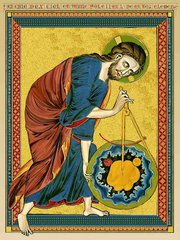Jesuit Father Antonio Spadaro, the literature editor
the Italian bi-weekly journal La Civiltà Cattolica published an article
“Towards a ‘Cybertheology’?” which will appear in the January 1st issue.
Father Spadaro’s summary:

The intelligence of faith in the era of the Net – The
Internet has become part of everyday life for many people, and for this reason
it increasingly contributes to the construction of a religious identity of the
people of our time, affecting their ability to understand reality, and
therefore also to understand faith and their way of living it. The Net and the
culture of cyberspace pose new challenges to our ability to formulate and
listen to a symbolic language that speaks of possibility and of signs of
transcendence in our lives. Perhaps the time has arrived to consider the
possibility of a cybertheology also understood as the intelligence of faith in
the era of the Net. It would be the fruit of faith that releases from itself a
cognitive boost at a time in which the logic of the Net influences the way we
think, learn, communicate and live.
Internet has become part of everyday life for many people, and for this reason
it increasingly contributes to the construction of a religious identity of the
people of our time, affecting their ability to understand reality, and
therefore also to understand faith and their way of living it. The Net and the
culture of cyberspace pose new challenges to our ability to formulate and
listen to a symbolic language that speaks of possibility and of signs of
transcendence in our lives. Perhaps the time has arrived to consider the
possibility of a cybertheology also understood as the intelligence of faith in
the era of the Net. It would be the fruit of faith that releases from itself a
cognitive boost at a time in which the logic of the Net influences the way we
think, learn, communicate and live.
This sounds like a fascinating article. This aspect in particular especially intrigued me: “The Net and the culture of cyberspace pose new challenges to our ability to formulate and listen to a symbolic language that speaks of possibility and of signs of transcendence in our lives.”
I’ve always believed that a proper understanding of Scripture comes from within the life of the Church, because it is that life which gives meaning to the symbolic language used by Scripture. Of course, the life of the Church is its liturgy. Through liturgy, the Church is able to pass down meaning, understanding, and continuity (the whole of semiotics). Though, when seen in this manner, the problem of the net is no different than the problem of those churches which have separated themselves from the life of the Church and rejected liturgical forms of worship that have been passed down for centuries.